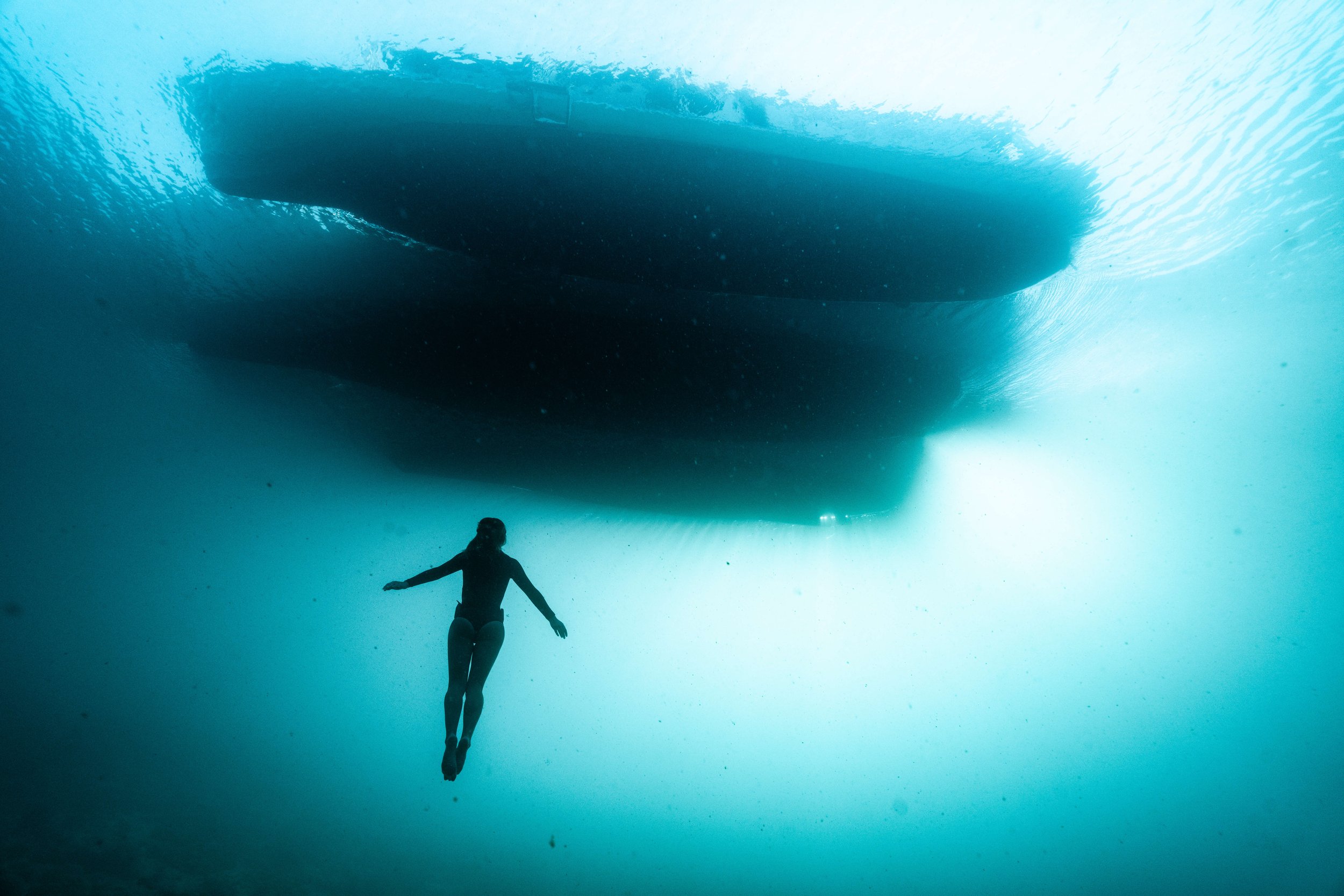‘Hiu’ Meaning: Shark (Bahasa Indonesia)
Our duty to protect sharks goes beyond entering the water…
Outside of his time in Florida running shark expeditions, Tanner is a part-owner of a company in Indonesia that employs shark fishermen in tourism. This initiative provides an alternative income to the unsustainable and harmful practice of unregulated shark fishing while still supporting low socioeconomic fishing communities.
Indonesia is the world's largest shark-fishing nation, driven by the growing demand for shark fin soup, a traditional Chinese delicacy. Shark fins sell for hundreds of dollars per kilogram, motivating fishers to catch as many sharks as possible, especially those with the largest fins. Project Hiu’s approach involves repurposing the exact boats used for shark fishing as tourism vessels. The project now employs over 10 boats and 50 crew members, and has even sponsored two former shark fishermen to attend university.
Through tourism, the fishermen of Lombok now take people to swim with sharks and then return home every night to their families. For every month a boat is hired for tourism, it is estimated that up to 60 sharks are saved from being caught and killed. In addition to these operations, Tanner has contributed to Project Hiu's shark research program by documenting the process and assisting in the tagging of tiger sharks at sea, all while ensuring safety in the water alongside the fishermen. Project Hiu is the first organisation to tag tiger sharks in these waters, giving vital insights into their movements & aiding in their protection.
Tanner's photography and shark-handling skills have been instrumental in the success of Project Hiu, as has his bond with the Indonesian fishermen, which exemplifies this human-centered approach to conservation.






How can you help sharks?
-
Being a smart consumer is probably the most essential thing you can do as an individual to help sharks. This goes beyond just saying no to shark fin soup and any establishments that sell shark fin soup. Shark byproducts include skin, liver oil, cartilage and meat can be found in many different products; ranging from cosmetics to jewellery. By saying no to shark products, or any product that contains shark derivatives, you are helping lower the demand for such products. You can also go one step further by getting in touch with companies and manufacturers to voice your concerns.
-
There is always a need for conservationists to protect their local environment. This is a great way to get started and often you have the most impact somewhere close to home, you don’t have to live by a beach to be able to make a positive change for sharks. Are there shark products at your local shop? Can you do something about this? Local issues are a great way to learn and become effective at conservation.
-
The most dangerous thing about shark, is often its consumption. From the meat to the fins, from arsenic to methyl mercury, naturally occurring toxins thrive in these apex predators. The sharks take no notice, but to us its lethal, and far more common thank you think.
-
Watch films such as Sharkwater, Blue the film, end of the line & more ocean focused documentaries to learn more...




